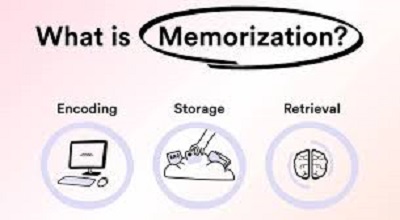Memorization in Education
Memorization in Education: In the ever-evolving landscape of education, the debate over the role of memorization in learning continues. While some argue that critical thinking and creativity should take precedence, others emphasize that memorization forms the foundation of knowledge acquisition. This comprehensive guide explores the importance of memorization in learning, its cognitive benefits, effective techniques, and how it enhances long-term retention.
At TeacherEducator.com, we believe in a balanced approach to education, where memorization and higher-order thinking skills work hand in hand. Whether you’re a teacher, student, or lifelong learner, understanding the value of memorization can transform your educational experience.
What is Memorization in Learning?
Memorization is the process of encoding, storing, and retrieving information in the brain. It involves committing facts, concepts, or skills to memory through repetition, association, and practice. While often associated with rote learning, effective memorization goes beyond mere repetition—it requires understanding and meaningful engagement with the material.
Types of Memorization
- Rote Memorization: Repeating information until it sticks (e.g., multiplication tables).
- Meaningful Memorization: Connecting new information to existing knowledge (e.g., learning vocabulary through context).
- Procedural Memorization: Mastering skills through practice (e.g., playing an instrument).
The Cognitive Science Behind Memorization
Neuroscience reveals that memorization strengthens neural pathways in the brain. Key brain structures involved include:
- Hippocampus: Crucial for forming new memories.
- Prefrontal Cortex: Helps with working memory and retrieval.
- Amygdala: Links emotions to memory, enhancing retention.
Research shows that spaced repetition and active recall significantly improve long-term memory retention compared to cramming.
Why Memorization is Important in Learning?
Builds a Strong Knowledge Foundation
Before applying critical thinking, learners must have foundational knowledge. Memorizing core facts (e.g., historical dates, math formulas) allows for deeper analysis later.
Enhances Cognitive Skills
- Improves working memory, essential for complex tasks.
- Strengthens mental discipline and focus.
Improves Problem-Solving Abilities
Having key concepts memorized speeds up decision-making (e.g., doctors recalling symptoms quickly).
Supports Language Acquisition
Vocabulary and grammar rules are memorized before fluency is achieved.
Boosts Confidence in Learning
Students who memorize effectively feel more prepared and less anxious during tests.
Effective Memorization Techniques
Spaced Repetition
Reviewing material at increasing intervals (e.g., flashcards with apps like Anki).
Mnemonics and Memory Aids
Using acronyms (e.g., “PEMDAS” for math order of operations) or rhymes.
Chunking Information
Breaking data into smaller groups (e.g., phone numbers: 555-867-5309).
Active Recall and Self-Testing
Quizzing yourself instead of passively rereading notes.
Visualization and Association
Linking information to vivid mental images or stories.
Memorization in Different Learning Stages
Early Childhood
- Alphabet, numbers, and basic vocabulary.
- Songs and rhymes enhance retention.
K-12 Education
- Times tables, scientific terms, historical facts.
- Flashcards and quizzes reinforce learning.
Higher Education & Professional Development
- Medical students memorizing anatomy.
- Lawyers recalling case laws.
Common Myths About Memorization
1. ❌ “Memorization Kills Creativity”
✅ Truth: It provides the mental “building blocks” for creative thinking.
2. ❌ “Rote Learning is Outdated”
✅ Truth: Some foundational knowledge requires repetition.
3. ❌ “Digital Tools Replace the Need for Memorization”
✅ Truth: Tech aids memory but doesn’t replace deep learning.
How Teachers Can Encourage Effective Memorization?
- Use multisensory techniques (e.g., hands-on activities).
- Gamify learning with memory-based games.
- Connect new material to prior knowledge.
The Future of Memorization in Education
- AI-powered tutors adapting to students’ memory strengths.
- VR and AR for immersive memorization experiences.
FAQs About Memorization in Learning
1. Is memorization still relevant in the age of Google?
Yes! Quick recall is essential for critical thinking and real-time problem-solving.
2. How can I improve my memorization skills?
Use active recall, spaced repetition, and mnemonic devices.
3. Does memorization work for all subjects?
Mostly yes, but application-based subjects (e.g., math) also need practice.
4. Can too much memorization hinder learning?
Balance is key—memorize foundations, then apply them critically.
5. What’s the best memorization technique for exams?
Spaced repetition combined with self-testing.
Conclusion
Memorization remains a vital component of learning, providing the scaffolding for advanced cognitive skills. By using science-backed techniques, learners and educators can maximize retention and application.
